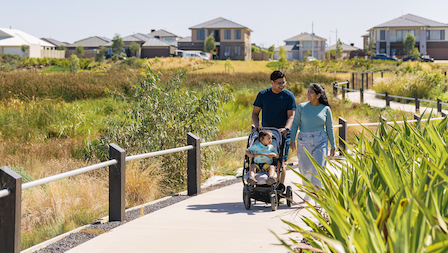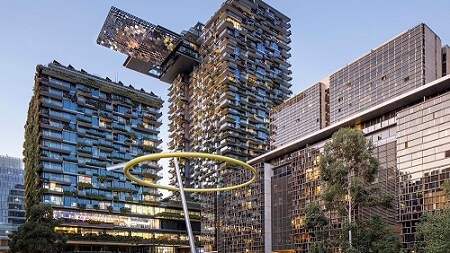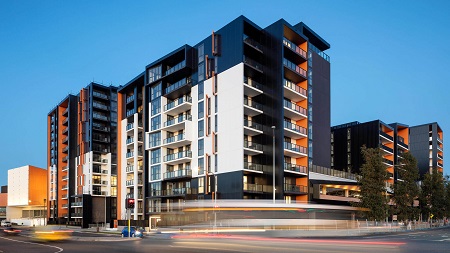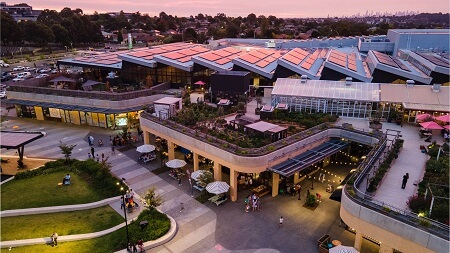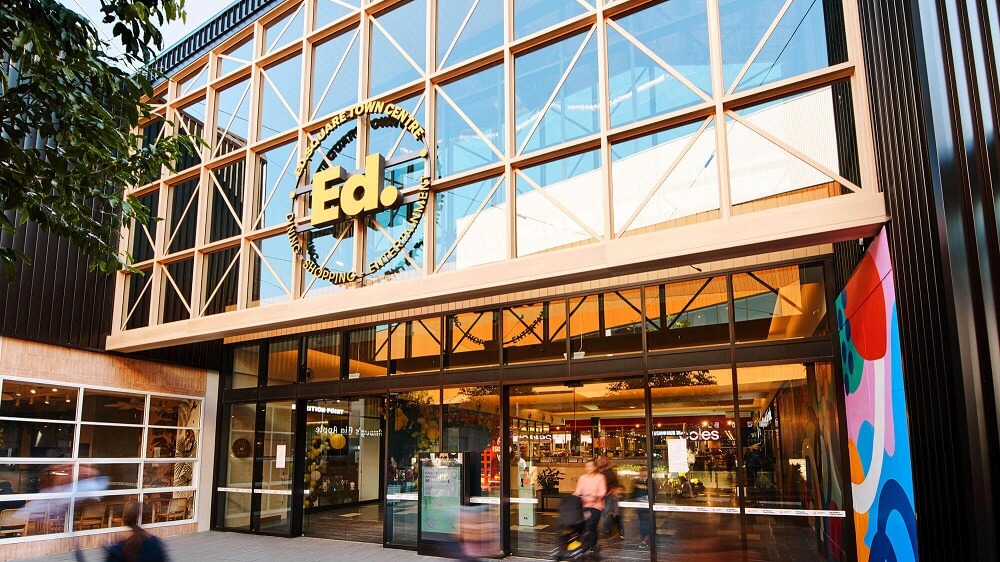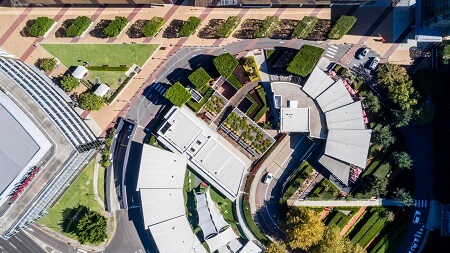Australian-first study at Fairwater shows power saving benefits of geothermal tech
Residents in flagship Frasers Property community in western Sydney reap rewards
- Three-year study of 750 homes at Fairwater community showed 21 per cent reduction in annual electricity consumption
- Findings will inform government policy and be shared with other developers
- One of the largest geothermal installations in the southern hemisphere
- Technology can potentially help smooth grid peaks thanks to reduction in peak demand
Homes at Fairwater, a world-leading sustainable community in western Sydney by Frasers Property Australia, use 21 per cent less electricity than comparable nearby suburbs because of geothermal technology, an independent study has found1.
The $1.64 million, three-year project known as the Fairwater Living Lab was funded by the Australian Renewable Energy Agency (ARENA), Frasers Property Australia and the NSW Office of Energy and Climate Change and examined the effects of ground source heat pumps which deliver geothermal heating and cooling, installed in 750 homes at the Fairwater community.
The study was led by Climate-KIC Australia and carried out by researchers from University of Technology Sydney and Curtin University. The findings of the study will now inform government policy and encourage broader industry adoption of the efficient energy geothermal infrastructure.
Ground source heat pumps use the stable ambient temperature below ground to heat and cool homes. In summer the units take heat from inside the home and transfer it via a series of underground pipes to the ground for cooling before returning it to the home. In winter they take natural heat from the ground and reverse the process.
The study found that when installed at scale, and at the beginning of the building process, the technology can be both a profitable and environmentally beneficial addition to a home. The ground source heat pumps added value to houses, and reduced power consumption by 21 per cent on average, as compared to nearby homes without the technology.
The project, which spanned three years from September 2019 to August 2021, and encompassed the Sydney COVID lockdowns, also found that the demand reduction aspects of the geothermal technology had the potential to “smooth out” electricity grid usage, which could help avoid spikes that can lead to blackouts and power cuts in extreme weather.
Fairwater homes recorded an average of 3kW of avoided power demand per household during critical peak events2 .
While the study focused on the benefits of the ground source heat pumps, it also looked at the other environmentally sustainable aspects of Fairwater, including its light-coloured roofs. It found that the roofs already produced a cooling effect of three to four degrees. As trees at Fairwater mature it is expected the ambient temperatures in the community will reduce even further.
Fairwater is located on a 38-ha former golf course and features 9.5-ha of open space and 3.5-ha of wetlands. The picturesque surrounds include lakes and ponds, boardwalks, walkways, cycleways, pramways, playgrounds, learn-to-ride bike track and connections to local transport and shopping amenities.
Professor Leena Thomas, Research Project Lead, University of Technology Sydney says the research offers a number of insights in relation to environmental performance as well as occupant behaviour and experience
“It is pleasing to see that the research demonstrated clear energy benefits from geothermal technology and high ratings for comfort in the Fairwater homes.”
“An overwhelming majority of residents at Fairwater also reported that living in the precinct has had a positive effect on their health and wellbeing.”
“Our findings highlight that an integrated precinct-based approach for incorporating sustainability and energy efficient technologies when combined with an understanding of occupant practices offers the best pathway for decarbonisation and getting beyond net zero.”
Cameron Jackson, General Manager Development NSW, Frasers Property Australia says the company has an ambitious target of being net zero in development and operation by 2028, and that means investigating new technology and spending the time to analyse and evaluate it.
“This has been such an interesting project to support, and watch unfold,” he says. “We were confident the installation of geothermal heating and cooling technology in our Fairwater homes would help our customers reduce their energy consumption, and their bills, and now we have confirmation of that
“We will use the findings of this ground-breaking study to guide us on our pathway to net zero.”
The study found installing geothermal technology at scale at Fairwater added additional upfront cost to the construction but combined with other environmentally friendly features of Fairwater homes, it contributed a cost saving the users and value to the properties at completion
Belinda Whelan, Director of Strategic Projects, Climate-KIC Australia says the study will provide governments and the property industry with solid information on which to base their geothermal decision-making.
“The built environment sector in Australia has a really important role to play in helping Australia meet its net-zero ambitions. Studies like Fairwater provide policy makers and the property sector with deep insight and data to guide informed decision-making to make rapid change at scale,” she says.
For media queries, please contact:
Wise McBaron
Trudy Wise
T +61 418 220 028
E trudy_wise@wisemcbaron.com.au
See more articles on



